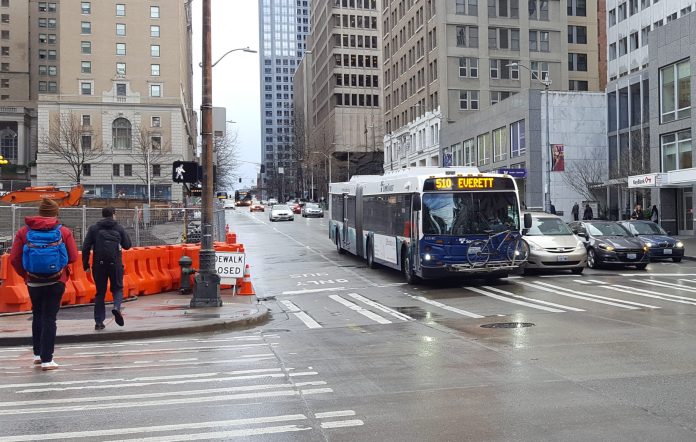Many Seattle commuters will get a new benefit that they can use for their transportation needs. Beginning in 2020, Seattle employers with 20 or more employees will need to offer pre-tax transit passes for their employees. This can save employees hundreds of dollars per year since the federal government offers pre-tax payroll deductions of up to $255 per month for transit expenditures.
Employers will need to offer partial or fully subsidized employer-provided transit passes or at least election into a commuter benefits program to purchase a transit pass with the payroll tax benefits beginning on January 1, 2020. New employees must be offered participation in a commuter benefits program within 60 days of starting employment. Employees are not compelled, however, to accept or purchase a transit pass.
In 2021, active enforcement of the program will begin with the Seattle Office of Labor Standards investigating any employer violations of the law.
According to city analysis, minimum wage earners could expect to see a $236 savings per year for a $100 ORCA pass. Likewise, individuals making $38,700 to $82,500 in the 22% tax bracket could save $356 per year.
Right now, many employees work for companies that do not offer transit pass benefit programs and therefore are not eligible for the corresponding payroll tax deductions. This means an employee pays a higher effective tax rate if they purchase a transit pass for commuting and cannot claim a deduction. Streamlining the process to qualify for the payroll tax deduction could lead to more people opting to have transit passes and using transit in Seattle–a win-win for all.
Featured image courtesy of Scott Bonjukian
Stephen is a professional urban planner in Puget Sound with a passion for sustainable, livable, and diverse cities. He is especially interested in how policies, regulations, and programs can promote positive outcomes for communities. With stints in great cities like Bellingham and Cork, Stephen currently lives in Seattle. He primarily covers land use and transportation issues and has been with The Urbanist since 2014.



